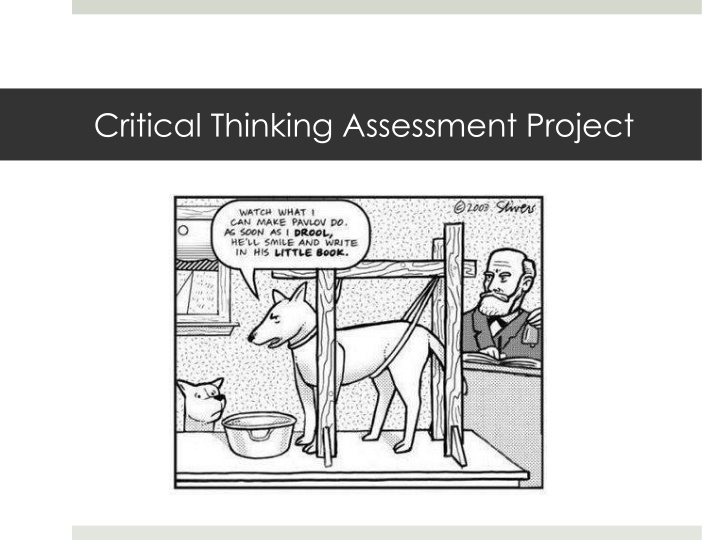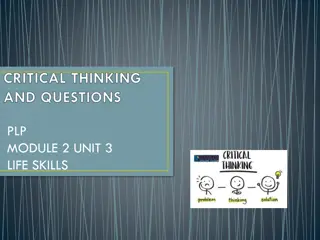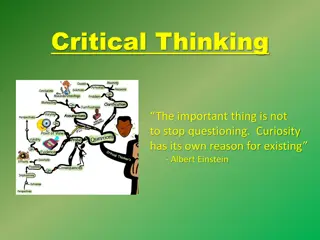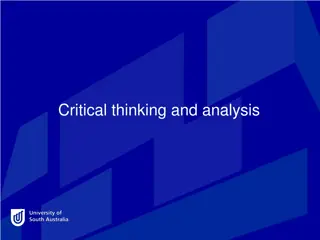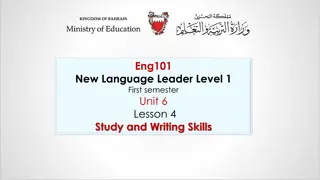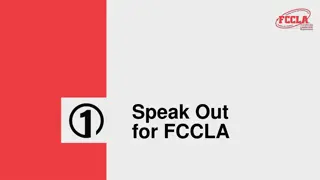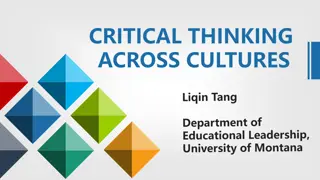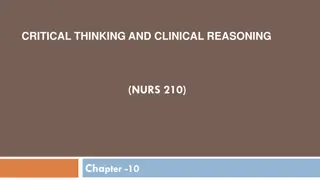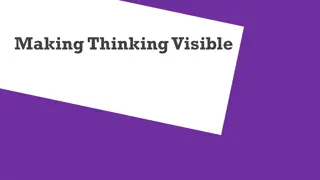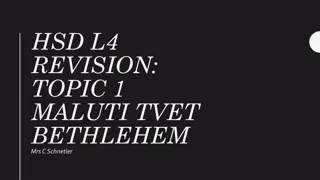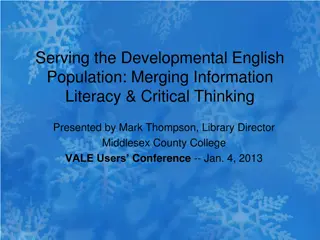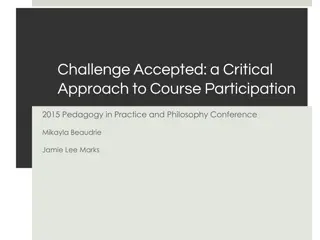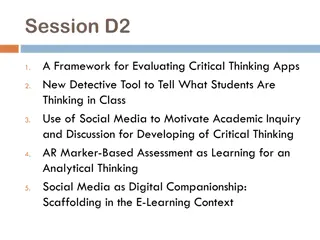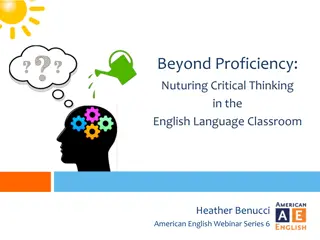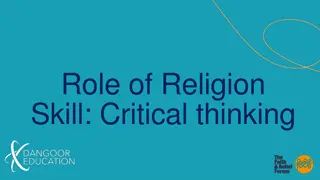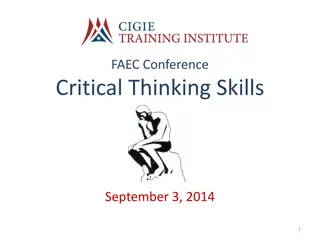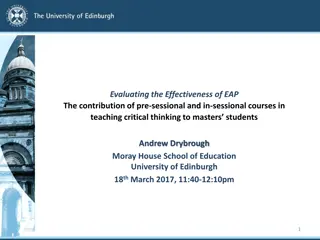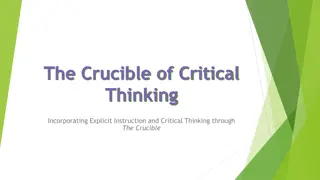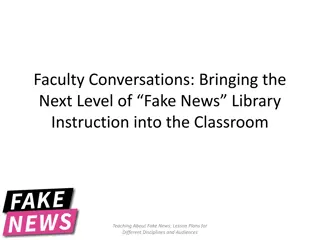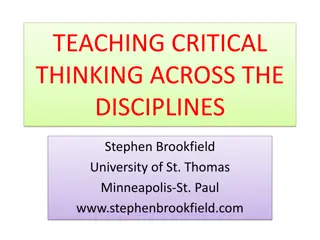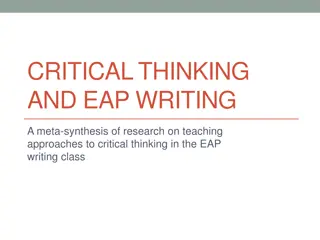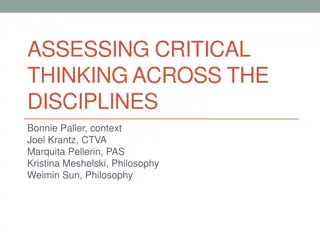Critical Thinking Assessment Project Overview
This project delves into the assessment of critical thinking skills within various courses, involving a team of faculty members from diverse disciplines. Through the analysis and evaluation of student work, the project aims to streamline competency assessment for improving student outcomes. The process includes collecting student assignments, removing identifying marks, and scoring samples based on interpretation, analysis, and evaluation criteria. Consensus among scorers was efficiently reached, showcasing the project's effectiveness in evaluating critical thinking abilities.
Download Presentation

Please find below an Image/Link to download the presentation.
The content on the website is provided AS IS for your information and personal use only. It may not be sold, licensed, or shared on other websites without obtaining consent from the author.If you encounter any issues during the download, it is possible that the publisher has removed the file from their server.
You are allowed to download the files provided on this website for personal or commercial use, subject to the condition that they are used lawfully. All files are the property of their respective owners.
The content on the website is provided AS IS for your information and personal use only. It may not be sold, licensed, or shared on other websites without obtaining consent from the author.
E N D
Presentation Transcript
Assessment of Critical Thinking is part of larger effort BCC Assessment Task Force: BCC Assessment Task Force: Co-Chairs: Charles Prescott (English), Stacy Evans (Sociology) Maura Delaney, English Michele Darroch, Physical Therapy Carlton Maaia, Hospitality Sciences Management Faye Reynolds, Biology Peggy Rivers, Fine Arts Primary task: Streamline the Core Competency system for institutional level assessment and improvement of student outcomes
Critical Thinking Assessment Registrar s Office compiled a list of Fall 2013 courses that have Critical Thinking Competency embedded, as well as courses that frequently grant CC-CT. Faculty teaching those courses were asked to collect and share student work from one assignment. All student work from the assignment as well as the assignment sheet were submitted. All identifying marks (student name, faculty name, course number) were removed before samples were shared with the scoring team.
Critical Thinking Assessment Project 251 samples from 12 courses Samples came from: Biology Criminal Justice English History Math Nursing Visual Arts
Critical Thinking Scoring Team \working with the rubric. Faculty Member: Faculty Member: Aidan Clement Michele Darroch Traci Dundas Joanne Heaton Chris Laney Sherry Scheer Julianna Spallholz Subject Represented: Subject Represented: Anthropology Physical Therapy Mathematics Nursing History Physical Fitness English
Scoring the Student Work January 6-7 (about 10 hours total) BCC Critical Thinking Rubric Scored 150 student samples on Interpretation, Analysis and Evaluation Possible scores: High, Acceptable, Insufficient, Not Attempted Each sample was double-read. If necessary, scorers discussed the work to reach consensus.
What we found (and Stacy analyzed!) 84% 84% of samples achieved competency (either acceptable or high ) on at least one competency (interpretation interpretation). 48% 48% achieved competency in the analysis analysis skill 27% 27% of samples achieved competency in the evaluation evaluation skill.
Possible correlations from looking at assignment sheets 27% achieved competency for evaluation; however, among samples in which evaluation was explicit in the assignment sheet, this number jumps to 57% I 93% of assignments asked for interpretation; 84% achieved that competency 40% of assignments asked for evaluation; 27% achieved that competency. No such correlation with analysis skill: 86% of assignments required this skill; 48% of samples achieve it. (Wide variety of ways in which analysis is used in assignments).
